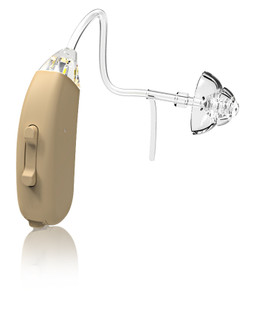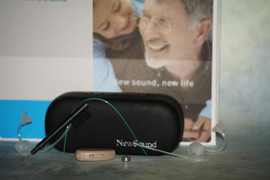Understanding Your Hearing Levels: A Guide for Hearing Aid Buyers
Posted by DR Paul on Feb 08, 2024
Hearing loss is a common problem faced by millions of people worldwide. It can occur at any age and has a significant impact on the quality of life. Whether you have mild or severe hearing loss, it is essential to understand your hearing levels to determine the best course of action to improve your hearing health. In this blog post, we'll explain how hearing levels are measured and what different results might mean for your hearing health. If you're in the market for hearing aids, this guide will help you make an informed decision.
1.How are hearing levels measured?
Hearing levels are measured using a test called audiometry, which assesses the person's ability to hear sounds at different frequencies and volumes. The test involves wearing headphones and listening to different tones or words played at various volumes and frequencies. The results are plotted on an audiogram, which shows the softest sounds a person can hear at each frequency tested.
2.What do different results on an audiogram mean?
The results on an audiogram are categorized into four degrees of hearing loss: mild, moderate, severe, and profound. Mild hearing loss means difficulty understanding soft speech, while severe or profound impairment may require the use of powerful hearing aids or implants.
3.Can age affect your hearing levels?
As we age, our ability to hear gradually declines due to natural changes in the ear structures responsible for processing sound waves. This condition is known as presbycusis and typically affects high-frequency ranges first.
4.How can hearing aid buyers use this information?
Understanding your level of hearing loss is crucial when choosing a suitable type of device that meets your individual needs. For example, if you have mild-to-moderate impairment in high-frequency areas only (typical with presbycusis), then selecting amplification devices that enhance sound clarity in those ranges would be appropriate. If you have severe or profound hearing loss, then cochlear implants or bone-anchored hearing aids may be the best option for you.
5.What should I do if I suspect hearing loss?
If you are experiencing difficulty understanding speech or have been exposed to loud noises over an extended period, it is essential to seek professional help from an audiologist. They can perform a hearing assessment and recommend the best course of action based on your individual needs.
Conclusion:
In conclusion, understanding your level of hearing loss is crucial when selecting a suitable device to enhance your quality of life. Knowing what different results on an audiogram mean will help you make informed decisions about amplification devices that are most effective for your specific type and severity of hearing loss. If you suspect hearing loss, don't hesitate to seek professional advice from an audiologist who can guide you through the process of assessing your hearing health and recommending the best treatment options for you. Remember, early intervention is key to maintaining healthy hearing levels into old age!










